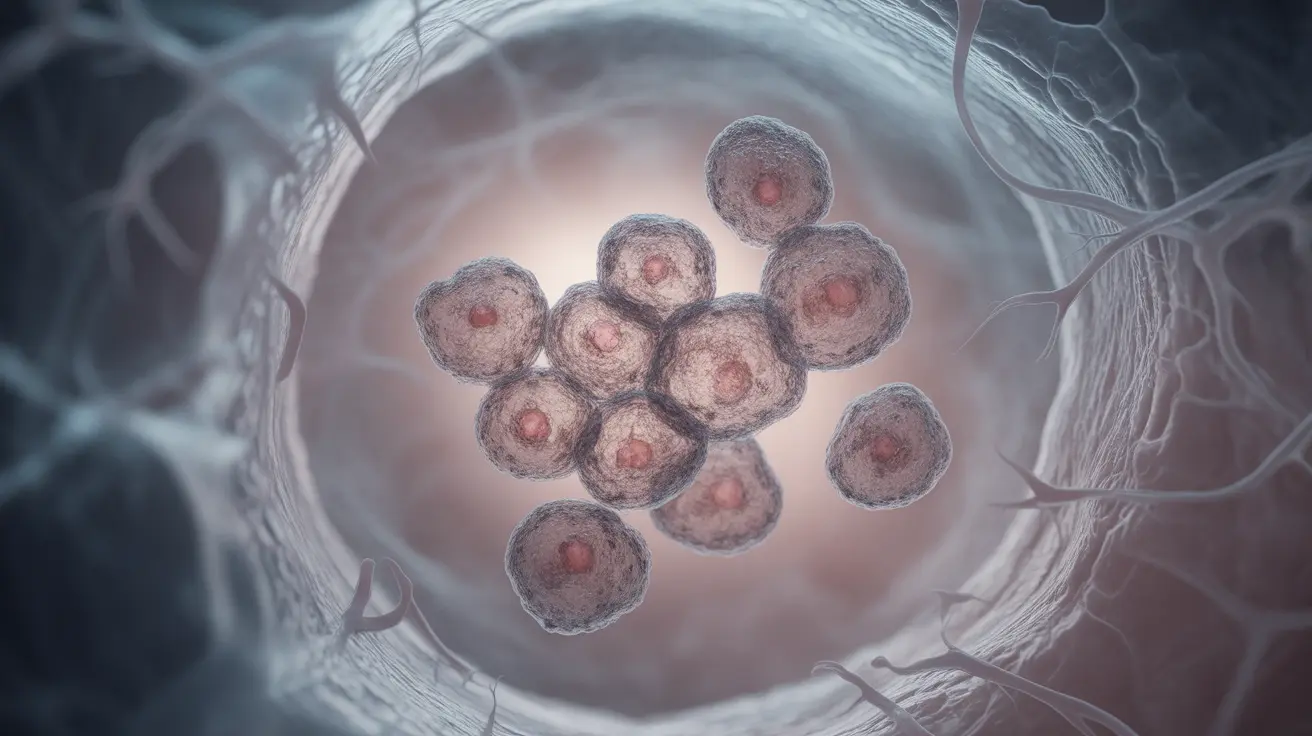HER2-negative breast cancer is a specific type of breast cancer characterized by the absence of excess HER2 proteins on cancer cell surfaces. Understanding this diagnosis is crucial as it directly impacts treatment options and overall prognosis. This comprehensive guide explores what HER2-negative breast cancer means, its treatment approaches, and what patients need to know about managing this condition.
What Is HER2-Negative Breast Cancer?
HER2-negative breast cancer occurs when breast cancer cells don't have high levels of a protein called human epidermal growth factor receptor 2 (HER2) on their surface. This characteristic affects how the cancer grows and responds to treatment. Unlike HER2-positive cancers, these tumors don't respond to targeted HER2 therapies, necessitating different treatment approaches.
Hormone Receptor Status and Its Importance
In HER2-negative breast cancer, hormone receptor (HR) status plays a crucial role in determining treatment options. Breast cancers can be:
- HR-positive/HER2-negative (most common type)
- Triple-negative (HR-negative and HER2-negative)
The hormone receptor status helps oncologists determine whether hormonal therapy might be effective as part of the treatment plan.
Common Signs and Symptoms
While HER2 status doesn't typically affect the initial symptoms, common signs of HER2-negative breast cancer include:
- A new lump or mass in the breast
- Changes in breast size or shape
- Skin changes or dimpling
- Nipple discharge or inversion
- Breast pain or tenderness
Treatment Approaches
Surgery
Surgical options typically include lumpectomy (removing the tumor and surrounding tissue) or mastectomy (removing the entire breast), depending on various factors including tumor size and location.
Chemotherapy
Chemotherapy may be recommended either before surgery (neoadjuvant) or after surgery (adjuvant), particularly for larger tumors or when there's lymph node involvement.
Hormone Therapy
For HR-positive/HER2-negative cancers, hormone therapy is often a crucial part of treatment. Options may include:
- Tamoxifen
- Aromatase inhibitors
- Ovarian suppression therapy
Triple-Negative Treatment
For triple-negative breast cancer, treatment typically involves chemotherapy as the main systemic treatment, often combined with surgery and radiation therapy. New targeted therapies and immunotherapy options are showing promise for certain cases.
Prognosis and Follow-up Care
The outlook for HER2-negative breast cancer varies depending on several factors, including stage at diagnosis, hormone receptor status, and response to treatment. Regular follow-up care, monitoring, and maintaining a healthy lifestyle are essential components of long-term management.
Frequently Asked Questions
What does HER2-negative breast cancer mean and how is it different from HER2-positive breast cancer? HER2-negative breast cancer means the cancer cells don't have excess HER2 proteins on their surface. Unlike HER2-positive cancers, these tumors don't respond to HER2-targeted therapies but may be more responsive to other treatment approaches.
What are the common treatment options for HER2-negative breast cancer? Common treatments include surgery, chemotherapy, radiation therapy, and hormone therapy (if hormone receptor-positive). The specific combination depends on factors like tumor size, stage, and hormone receptor status.
How does hormone receptor status affect treatment and prognosis in HER2-negative breast cancer? Hormone receptor status determines whether hormonal therapy will be effective. HR-positive cancers generally have more treatment options and often a better prognosis, while triple-negative cancers typically require more aggressive treatment approaches.
What are the symptoms and signs to watch for with HER2-negative breast cancer? Key signs include breast lumps, changes in breast size or shape, skin changes, nipple discharge or inversion, and breast pain. Regular breast self-exams and mammograms are important for early detection.
Can triple-negative breast cancer be treated if it is HER2-negative and hormone receptor negative? Yes, triple-negative breast cancer can be treated, typically with a combination of chemotherapy, surgery, and radiation therapy. New treatment options, including immunotherapy and targeted therapies, are showing promising results for certain cases.




